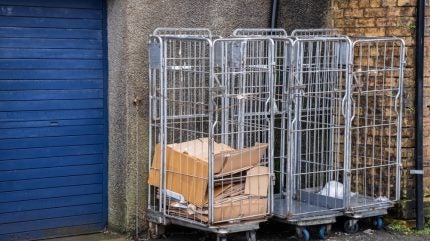
Retailers across the UK are preparing for the rollout of Extended Producer Responsibility (EPR), a landmark regulation that will shift the full cost of household packaging waste disposal from local authorities to producers.
Set to take effect from October 2025, the scheme is expected to cost the industry around £2 billion annually, with significant implications for packaging strategies, supply chains and product pricing.

Discover B2B Marketing That Performs
Combine business intelligence and editorial excellence to reach engaged professionals across 36 leading media platforms.
How EPR changes the cost of packaging waste
Under the EPR scheme, retailers and manufacturers will be required to pay fees based on the type, weight, and recyclability of the packaging they place on the market.
This replaces the current shared-cost system, where local councils bear most of the expense for collecting and processing packaging waste.
The Department for Environment, Food & Rural Affairs (Defra) confirmed that modulated fees will apply from 2026, meaning that producers using easier-to-recycle materials will pay less.
This aims to encourage eco-friendly packaging design and a reduction in hard-to-recycle plastics.

US Tariffs are shifting - will you react or anticipate?
Don’t let policy changes catch you off guard. Stay proactive with real-time data and expert analysis.
By GlobalDataFor now, fees will be calculated based on total packaging volumes reported by businesses for 2023, with the first invoices due next year.
Retail sector faces cost and compliance pressure
Retailers are concerned about the financial burden and administrative complexity of complying with the new rules.
Industry groups such as the British Retail Consortium (BRC) have called for greater clarity around fee calculations and how the funds will be used to improve recycling infrastructure.
Helen Dickinson, Chief Executive of the BRC, said the new EPR scheme must “deliver value for money and transparency.” She also urged the government to reinvest funds into developing a more effective waste collection system that supports retailers in achieving their sustainability goals.
Large brands have warned that some of the costs may ultimately be passed on to consumers.
According to the Food and Drink Federation, the EPR rollout could lead to increased prices across everyday goods if retailers and suppliers are unable to absorb the additional charges.
Data reporting and packaging design under scrutiny
Retailers have already begun adjusting their packaging strategies to minimise liability under EPR. This includes reducing packaging weight, eliminating unnecessary materials, and switching to widely recyclable formats.
Businesses with an annual turnover above £2 million and placing more than 50 tonnes of packaging on the UK market must also register with the EPR system and submit detailed packaging data.
The data reporting requirement, which began in 2023, has proven challenging for many organisations. A lack of centralised guidance and inconsistencies in local recycling services have made it difficult for businesses to assess the recyclability of certain materials.
Retailers are also reviewing product design, sourcing and labelling practices in preparation for modulated fees. Some are accelerating plans to adopt mono-material solutions or move away from coloured plastics that cannot be recycled at scale.





